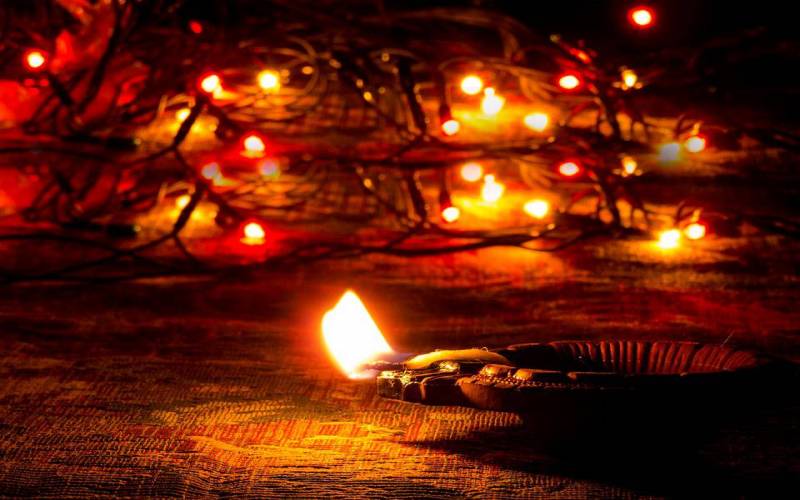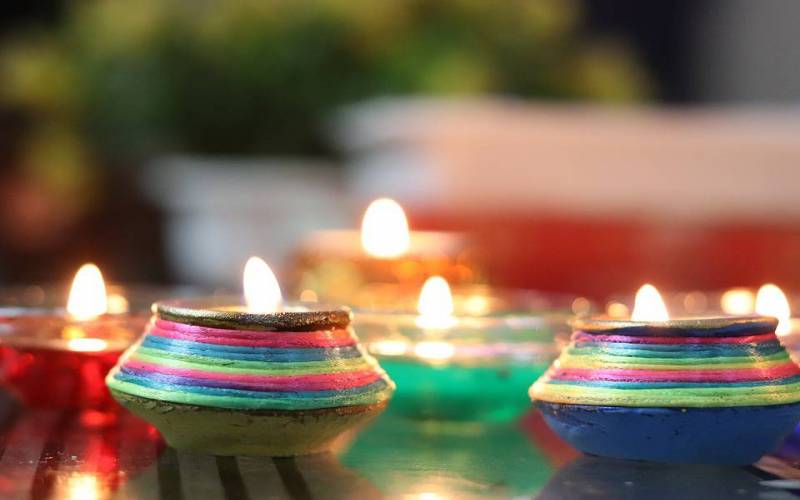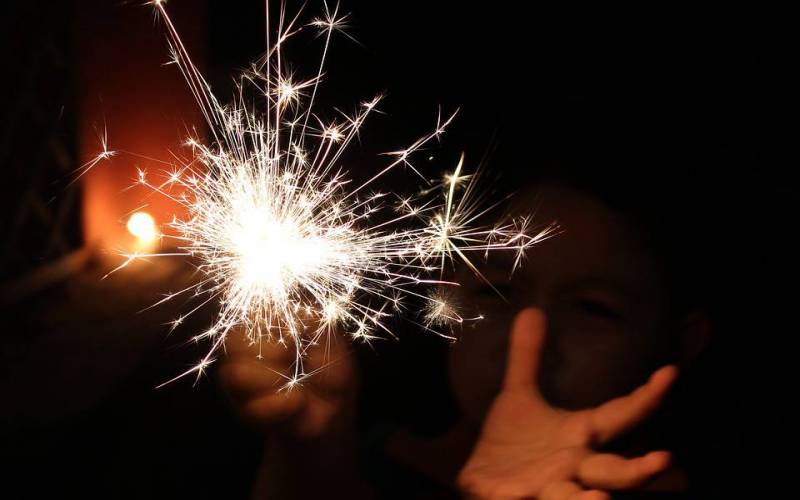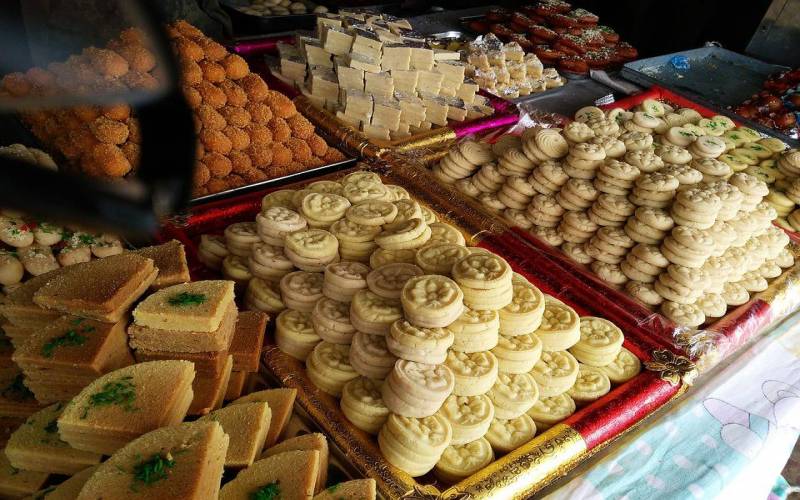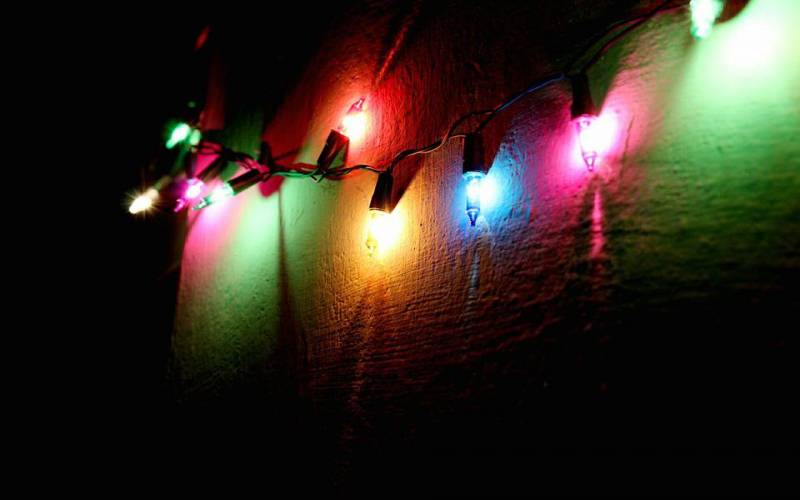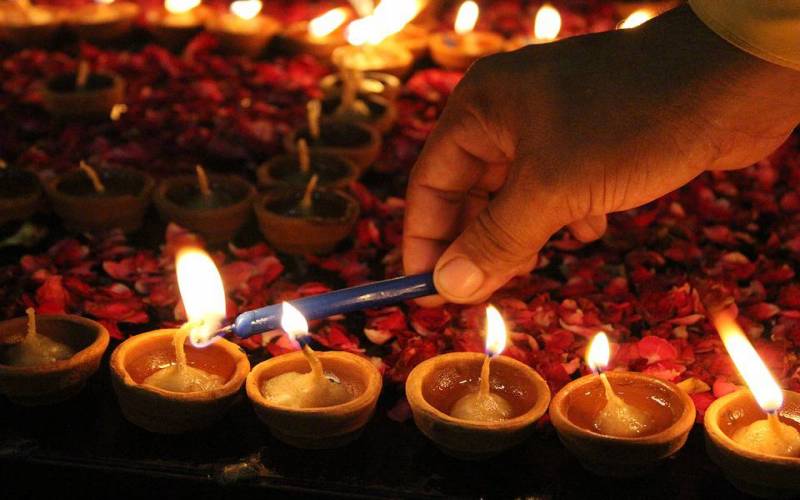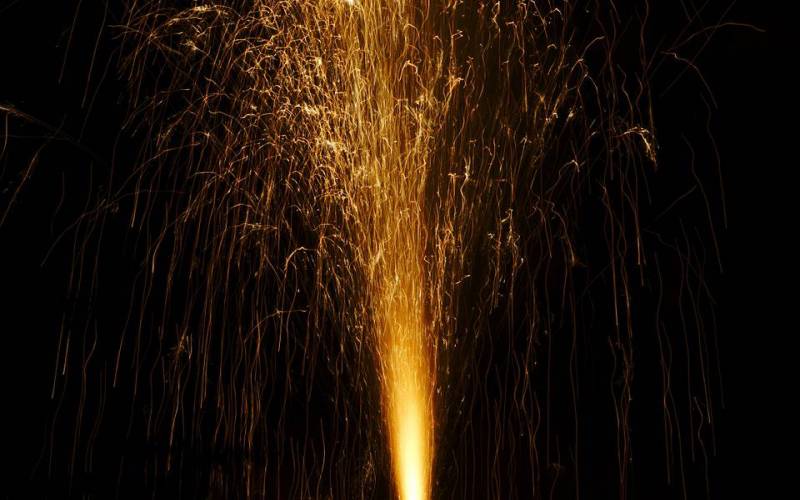Diwali Festival, India
Diwali festival celebrating the victory of light over darkness, the festival generally falls in late October or early November in the Gregorian calendar. The name is derived from Sanskrit, and means "row of lights."
Each region and tradition observe Diwali differently. On the night of the new moon, the ritual of lighting diyas (small earthenware lamps filled with oil) to invite Lakshmi's presence is the most widespread custom in Hinduism. It is a Bengali tradition to worship the goddess Kali. Rama, Sita, Lakshmana, and Hanuman returned to the city of Ayodhya following their victory over Ravana. Thus, the festival is also associated with the holiday of Dussehra in North India. Festivals commemorate Krishna's victory over Narakasura in South India. While some people observe Diwali as the birthday of Lakshmi, others observe it as the anniversary of Lakshmi's marriage to Vishnu.
Whereas during festive season, diyas are lighted & set in lines mostly along outer walls of temples and homes. They are also placed adrift in rivers and streams. The outside and inside of homes are decorated with elaborate rangolis, and the floors are covered with flower petals or colored rice.
During Diwali Festival, people visit, exchange gifts, wear new clothes, feast, feed the poor, and set off fireworks (although such displays have been restricted since they significantly damage the environment). Gambling, especially in the form of card games, is encouraged to ensure good fortune in the coming year and to commemorate the games of dice played on Mount Kailasa by Shiva and Parvati and similar contests between Radha and Krishna. Traditionally, the winning player is the female, honoring Lakshmi's recognition.
